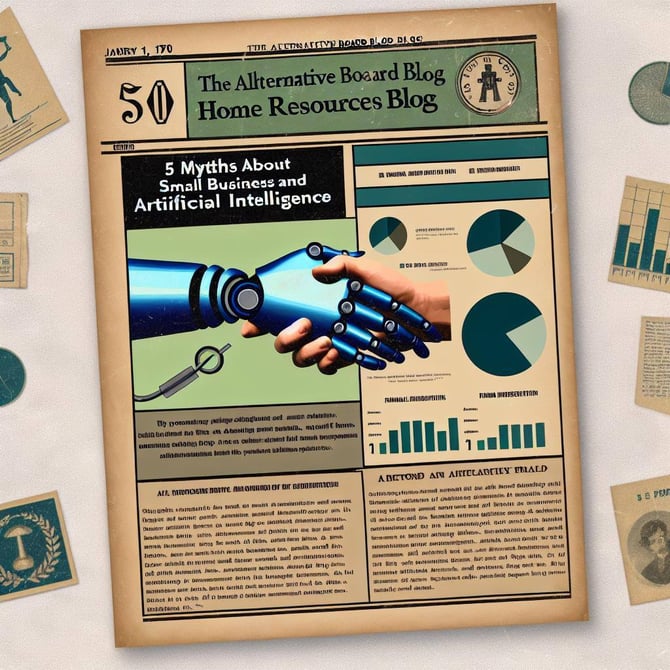Does Car Insurance Cover Personal Belongings Damaged in a Car Accident?
Car insurance primarily serves to protect your vehicle against potential damage or loss. However, some policies extend coverage to personal belongings within the car at the time of an accident. Whether or not your personal belongings are covered depends on several factors, including the type of insurance policy you have and the specific terms and conditions outlined in your policy document.
What Types of Personal Belongings Are Covered?
Most car insurance policies provide coverage for personal belongings that are considered necessary or reasonable to have in a vehicle. This can include items such as clothing, electronic devices (laptops, phones, tablets), luggage, and sports equipment. However, there are limitations and exclusions to this coverage, and certain high-value items may require additional insurance protection.
For instance, some policies may limit coverage for personal belongings to a specific dollar amount per person or per accident. Additionally, certain types of belongings may be specifically excluded from coverage, such as cash, credit cards, jewelry, furs, and collectibles. It’s crucial to review your policy carefully to determine the extent of coverage for your personal belongings.
When Are Personal Belongings Covered?
Car insurance coverage for personal belongings typically applies when they are damaged or lost in an accident involving your insured vehicle. This means that if your car is involved in a collision, and your personal belongings inside the car are damaged or destroyed, your insurance policy may cover the cost of replacing or repairing those items.
However, it’s important to note that coverage is generally limited to items that were inside the vehicle at the time of the accident. If you leave personal belongings in your car overnight or unattended, they may not be covered under your insurance policy. Additionally, if the damage to your personal belongings is caused by theft or vandalism, you may need to file a separate claim under your homeowner’s or renter’s insurance policy.
What Steps Should You Take?
If you’ve been involved in a car accident and your personal belongings have been damaged, it’s crucial to take prompt action to protect your interests. First, ensure your safety and the safety of any other individuals involved in the accident. Once the immediate situation is under control, follow these steps:
- Contact the police to report the accident and obtain an official police report.
- Take photos or videos of the damage to your vehicle and personal belongings.
- Make a list of all damaged or lost personal belongings, along with their estimated value.
- Notify your car insurance company as soon as possible and provide them with all necessary details about the accident and your damaged belongings.
- Cooperate with your insurance company throughout the claims process and provide any requested documentation or information.
Does Car Insurance Cover Personal Belongings Damaged in a Car Accident?
If you’ve ever been in a car accident, you know they can be stressful. In addition to dealing with injuries and property damage, you may also be wondering whether your car insurance covers your personal belongings that were damaged in the crash. The answer depends on the specific policy and the type of insurance you have.
Understanding Coverage
Most car insurance policies include some coverage for personal belongings, but the amount of coverage varies. Collision coverage, which is required in most states, typically covers damage to your car and any personal belongings inside it. Comprehensive coverage, which is optional, covers damage to your car from non-collision events, such as theft, vandalism, and weather-related damage. It also typically includes coverage for personal belongings.
The amount of coverage for personal belongings under a comprehensive policy varies from policy to policy. Some policies provide a specific dollar amount of coverage, while others provide a percentage of the value of your car. For example, a policy with a $500 deductible and a $1,000 coverage limit for personal belongings would pay up to $500 for damaged belongings after you pay the deductible.
It’s important to note that personal belongings are not covered under liability coverage. Liability coverage only covers damages that you cause to other people or their property. So, if you’re in an accident and you damage someone else’s car, your liability coverage will pay for the repairs to their car, but it won’t cover your personal belongings that were damaged in the crash.
If you’re concerned about having enough coverage for your personal belongings, you can talk to your insurance agent about increasing your coverage limits. You may also want to consider purchasing a separate rider or endorsement that provides additional coverage for your belongings.
Does Car Insurance Cover Personal Belongings Damaged in a Car Accident?
When involved in a car accident, the primary concern is ensuring everyone’s well-being. However, what about the personal belongings inside your vehicle? Are they covered by your insurance? The answer depends on the type of coverage you have and the specific circumstances of the accident.
Collision and Comprehensive Coverage
Collision coverage, as the name suggests, covers damage to your vehicle caused by a collision with another vehicle or object. It does not, however, extend to personal belongings. Comprehensive coverage, on the other hand, provides broader protection and typically includes coverage for theft, vandalism, and other non-collision-related damage. This coverage may also include personal belongings, but it varies from policy to policy.
Personal Belongings Coverage
Whether or not your personal belongings are covered under comprehensive coverage depends on the specific terms of your policy. Some policies have a blanket coverage for personal belongings, while others may limit the amount or type of belongings covered. It’s essential to check your policy carefully or contact your insurance provider for clarification.
In some cases, personal belongings may be covered under a separate “riders” or endorsement added to your policy. These riders can provide additional coverage for valuables such as jewelry, electronics, or luggage. It’s worth considering these if you have valuable items that you frequently transport in your vehicle.
It’s important to note that there may be exclusions to personal belongings coverage. For example, some policies may not cover cash, credit cards, or other financial instruments. Additionally, there may be limits on the amount of coverage available for certain types of belongings.
Understanding your car insurance coverage is crucial to ensure that you have adequate protection in the event of an accident. By reviewing your policy carefully and considering any necessary riders, you can help safeguard your personal belongings and avoid unexpected expenses after a car accident.
Does Car Insurance Cover Personal Belongings Damaged in Car Accident?
If you’ve ever been in a car accident, you know how stressful it can be. But what happens when your personal belongings are damaged in the crash? Does car insurance cover them? The answer is: it depends.
What Is Covered?
Most car insurance policies provide some coverage for personal belongings that are damaged in a car accident. This coverage typically includes:
- Clothing and accessories
- Electronics (laptops, phones, tablets)
- Documents (passports, licenses, bank statements)
- Jewelry (up to a certain limit)
- Sporting equipment
- Tools
Limits and Exclusions
Insurance policies may have limits on the amount of coverage for personal belongings, and some items may be excluded from coverage. For example, your policy may only cover personal belongings up to a certain dollar amount, or it may exclude certain types of items, such as cash, firearms, or illegal drugs.
How to File a Claim
If your personal belongings are damaged in a car accident, you should file a claim with your insurance company as soon as possible. You will need to provide the insurance company with a description of the damaged items, as well as proof of ownership. You may also need to provide the insurance company with a police report or other documentation.
Getting Reimbursed
Once you have filed a claim, your insurance company will review it and determine how much you are entitled to receive. You may be reimbursed for the actual cash value of the damaged items, or you may be given a replacement.
What If I’m Not at Fault?
If you are not at fault for the car accident, you may be able to file a claim with the other driver’s insurance company. In this case, you will need to provide the insurance company with the same information that you would provide your own insurance company.
Can I Get Additional Coverage?
If you want to increase the amount of coverage you have for personal belongings, you can purchase an additional rider from your insurance company. This rider will typically increase your coverage limit by a certain dollar amount.
Conclusion
Car insurance can provide coverage for personal belongings that are damaged in a car accident. However, it is important to understand the limits and exclusions of your policy before you file a claim.
Does Car Insurance Cover Personal Belongings Damaged in a Car Accident?
If you’ve ever been in a car accident, you know that it can be a stressful and traumatic experience. In addition to dealing with the physical and emotional toll, you may also have to worry about the financial costs of repairing or replacing your vehicle and any personal belongings that were damaged in the crash.
One of the most common questions that people have after a car accident is whether their insurance will cover the cost of their damaged personal belongings. The answer to this question depends on a number of factors, including the type of insurance coverage you have and the specific terms of your policy.
Filing a Claim
If you want to file a claim for damaged personal belongings, you must provide proof of ownership and the value of the items. This can be done with receipts, invoices, or appraisals. You will also need to provide a detailed description of the damage to your belongings.
What is Covered?
The types of personal belongings that are covered by car insurance vary from policy to policy. However, some of the most common items that are covered include:
- Clothing
- Electronics
- Jewelry
- Luggage
- Sporting equipment
- Tools
What is Not Covered?
There are some items that are not typically covered by car insurance, such as:
- Cash
- Credit cards
- Gift cards
- Illegal drugs
- Weapons
How to Get the Best Coverage
If you want to make sure that your personal belongings are adequately covered in the event of a car accident, there are a few things you can do:
- Choose a policy with a high coverage limit.
- Get an appraisal for your valuables.
- Keep a detailed inventory of your belongings.
- Store your belongings in a safe place.
By following these tips, you can help ensure that you are financially protected in the event of a car accident.
Does Car Insurance Cover Personal Belongings Damaged in Car Accident?
Car accidents can be stressful and chaotic, leaving you with more than just damage to your vehicle. Many people wonder if their personal belongings damaged in a car accident are covered by their insurance. The answer can be a bit complex and depends on several factors, including the type of insurance you have, the cause of the accident, and the coverage limits of your policy. To provide a comprehensive understanding, we will explore this issue in detail and outline steps you can take to safeguard your belongings.
Comprehensive and Collision Coverage
In most cases, comprehensive and collision coverage will provide protection for your personal belongings in the event of a car accident. Comprehensive coverage is designed to protect against damage caused by events outside of your control, such as theft, weather-related incidents, fire, or vandalism. On the other hand, collision coverage specifically covers damages resulting from a collision with another vehicle or object. Both comprehensive and collision coverage typically include coverage for your personal belongings up to the policy limits.
Liability Coverage
Liability coverage, on the other hand, does not cover damage to your personal belongings. Liability coverage is designed to protect you from financial responsibility if you cause damage to another person’s property or injuries. Therefore, it will not cover the loss of or damage to your own personal belongings.
Personal Articles Coverage
Some insurance companies offer additional coverage options, such as personal articles coverage or scheduled personal property coverage, which can provide more comprehensive protection for your personal belongings. These add-ons can provide coverage for high-value items, such as jewelry, electronics, or collectibles, that may not be fully covered under standard comprehensive or collision coverage. It’s important to check with your insurance provider to determine if you have any of these additional coverages.
Steps to Protect Personal Belongings
While insurance can provide financial protection, there are steps you can take to minimize the risk of damage or loss to your personal belongings in a car accident:
- Lock your car and keep all windows closed.
- Remove any visible valuables, such as laptops, bags, or electronics.
- Consider investing in a car alarm system.
- Park in well-lit and secure areas.
- Document your belongings with photos or a detailed inventory.
- Keep receipts for purchases to support your claim in the event of a loss.
Conclusion
Understanding whether car insurance covers personal belongings damaged in a car accident is crucial for making informed decisions. While comprehensive and collision coverage typically provide protection, it’s essential to review your policy carefully and consider additional coverage options like personal articles coverage for valuable items. By taking steps to prevent damage and filing a claim promptly, you can maximize the protection for your personal belongings in case of an unfortunate event.
Does Car Insurance Cover Personal Belongings Damaged in Car Accident?
Your car insurance policy protects you, your vehicle, and any injuries or damages you cause to others in an accident. What about belongings inside your car? Are they also covered? The short answer is: It depends on the type of coverage you have and the specific circumstances of the accident.
In many cases, personal belongings are not covered under standard car insurance policies because they are considered personal property, not part of the vehicle. However, some policies may offer limited coverage for personal belongings, such as coverage for items stolen from your car or damaged in an accident caused by another driver. If you’re concerned about protecting your belongings, it’s important to check your policy and consider purchasing additional coverage.
What Personal Belongings Are Covered?
The type of personal belongings covered under car insurance policies varies depending on the policy. In general, most policies cover items that are inside the car at the time of the accident and that are owned by the policyholder or a family member. This can include items such as clothing, electronics, luggage, and other personal belongings.
What Are the Exceptions?
Some personal belongings are not covered under car insurance policies, such as cash, jewelry, collectibles, and other valuable items. Additionally, some policies may have limits on the amount of coverage for personal belongings. For example, a policy may only cover up to $500 worth of personal belongings.
What to Do if Your Personal Belongings Are Damaged
If your personal belongings are damaged in a car accident, it’s important to report the accident to your insurance company as soon as possible. You will need to provide the insurance company with a detailed list of the damaged items and their estimated value. The insurance company will then investigate the claim and determine if the damages are covered under your policy.
Additional Considerations
Policyholders may consider purchasing additional coverage through a personal articles policy or rider to increase protection for valuable belongings. These policies can provide coverage for items that are not covered under a standard car insurance policy, such as jewelry, collectibles, and other valuable items. Additionally, policyholders may consider increasing the coverage limit for personal belongings under their car insurance policy to ensure that they have adequate protection.
If you are unsure whether your personal belongings are covered under your car insurance policy, it’s important to contact your insurance company and ask. They can provide you with specific information about your coverage and help you determine if you need additional protection.




Leave a Reply